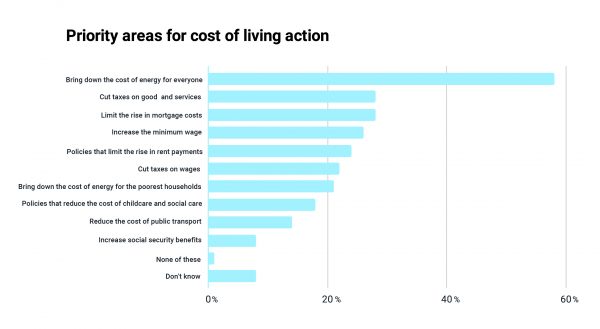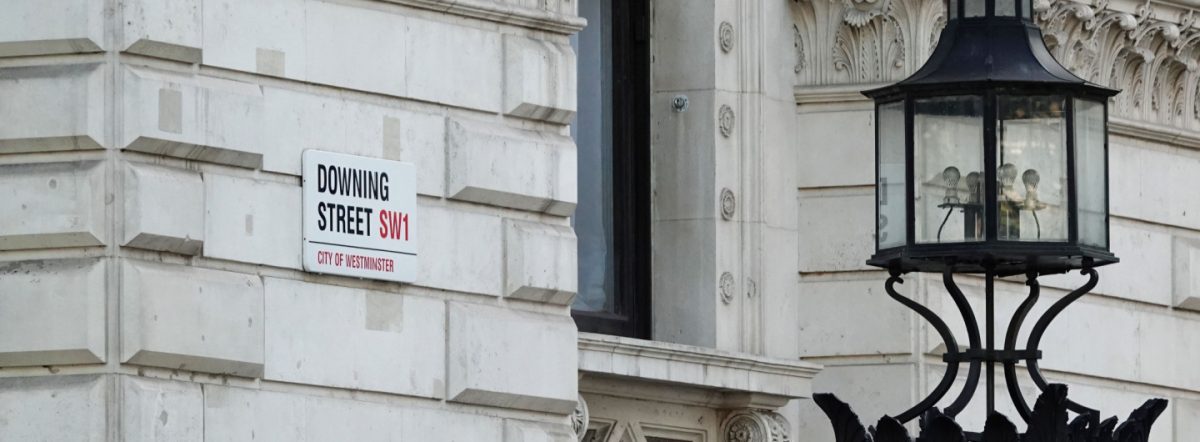Key swing voters say policies to tackle the cost of living crisis are critical to their voting intentions in the next election, but neither major party has the confidence of voters on the issue.
As a new Secretary of State for Energy Security and Net Zero has been appointed, the report finds that the cost of living crisis is the number two issue determining how people will vote at the next election, with 50% of all voters choosing it as a priority issue, just behind the NHS.
The figures from YouGov on behalf of the Stop the Squeeze campaign reveal that bringing down the cost of energy for households is the number one solution to the crisis people would like to see.

Overall, 58% of voters would like to see policies enacted to bring down the cost of energy bills – by far the most popular option to tackle the cost of living crisis, with cutting VAT the second favourite on 28%. The report authors found that this option performs consistently well among all types of voter demographics and across voters of all parties.
Sam Tims, senior economist at the New Economics Foundation (NEF) said: “Ahead of the next election voters’ priorities are clear: they want politicians to offer up bold solutions to tackle the cost of living crisis. Energy bills, housing costs and wages will be at the forefront of people’s minds.
“There is a golden opportunity for any political party that can offer voters both a short term-plan to support people through the cost of living crisis and the long-term change we need to improve living standards for good.”
The Prime Minister has reshuffled his top team ahead of the next General Election with Claire Coutinho replacing Grant Shapps as Energy Secretary. A spokesperson for the End Fuel Poverty Coalition, commented:
“Claire Coutinho’s inbox is already groaning under the weight of vital decisions which need to be made to reform Britain’s broken energy system.
“Energy bills remain at record levels with every unit of energy costing double what it did in winter 2020/21, with daily standing charges also increasing and customers in record levels of energy debt.
“As well as securing financial support to help people stay warm this winter, the new ministerial team will need to amend the Energy Bill to ban the forced transfer of households onto prepayment meters and improve the energy efficiency of rented properties.
“Previous ministers appeared to abandon plans to consult on tariff reform to help the households most in need and who most rely on energy to keep themselves safe. The new Secretary of State has an opportunity to recommit the Government to a social tariff and make meaningful long term change to people’s energy bills.
“The Secretary of State also needs to speed up reforms to the electricity market to ensure customers quickly enjoy the advantages of more affordable renewable energy, and so that their electricity rates are no longer subject to the unpredictable cost fluctuations of fossil fuels.
“There is also the opportunity for ministers to turn the current crisis into an opportunity to engage households in a large-scale retrofitting programme. They must also look at addressing UK energy security and independence by weaning the UK off its dependence on oil and gas and ending subsidies for fossil fuels, using this money to support a fair transition onto cleaner heat.”
ENDS
Download the full report as a pdf here: https://uploads-ssl.webflow.com/63357e2a3f369bd320e28ebe/64ef655fbbd961fcdb5441cd_The%20Bottom%20Line%20polling%20report%20FINAL.pdf

